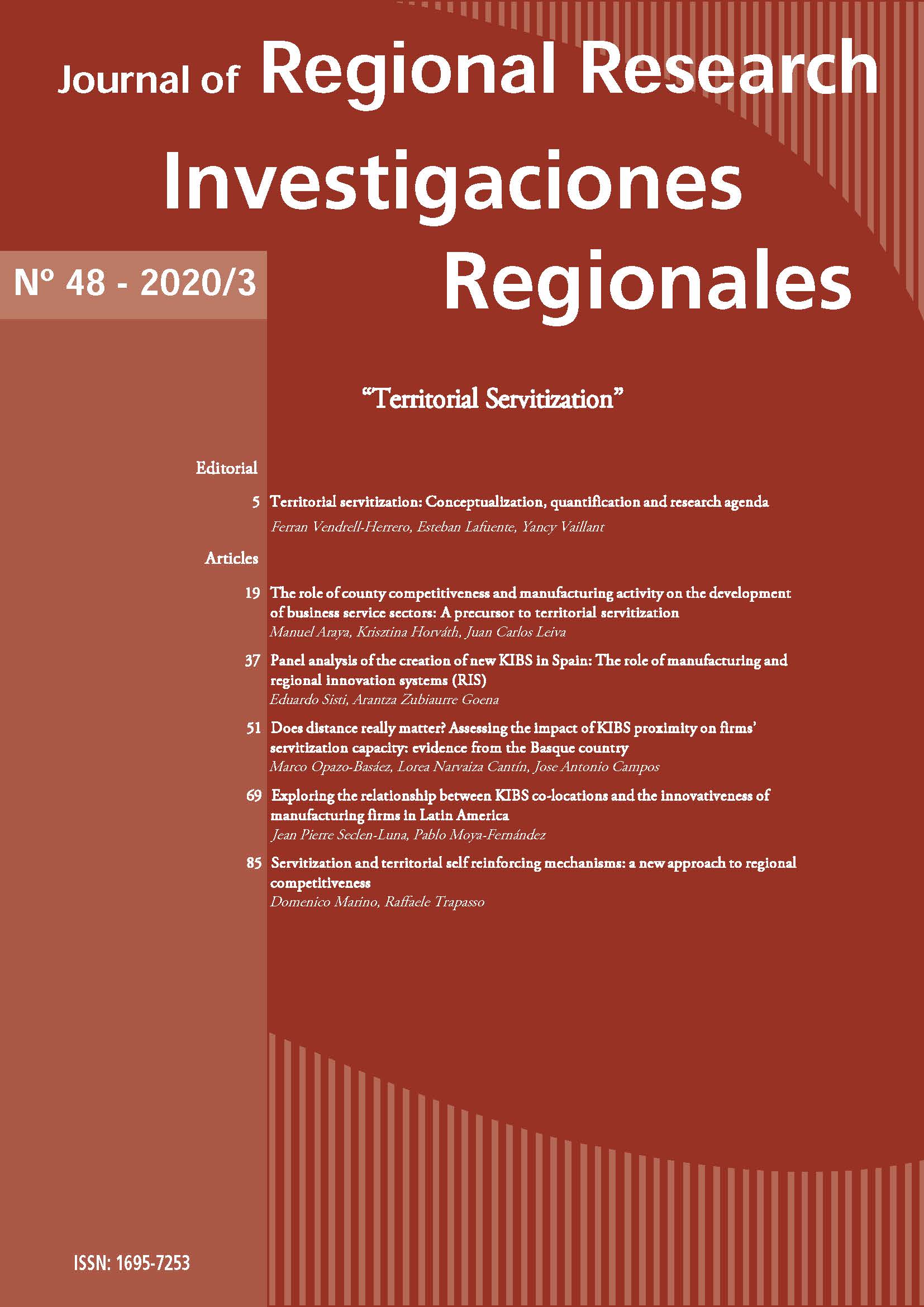Does distance really matters? Assessing the role of KIBS proximity in firm´'s servitization capacity: evidence from the Basque Country
DOI:
https://doi.org/10.38191/iirr-jorr.20.020Palabras clave:
servitization capacity, knowledge-intensive business service (KIBS), geographical distanceResumen
Servitization strategy is increasingly recognized as a key source of value with important competitive and economic potential across the globe. Over the years, it has been proven to contribute to territorial performance through the provision of services to manufacturing businesses. Such contribution, however, has been to a large extent consequential to the configuration of local industrial structures, and most importantly, by interconnectedness between manufacturing firms and knowledge intensive business services (KIBS) firms. Hence, the process of territorial servitization is highly conditioned to the association between manufacturing businesses and KIBS firms. To date, territorial servitization literature mostly describes the implications of KIBS firms for service deployment and service innovation in manufacturing, considering knowledge and technological capabilities as main variables for its success. Nevertheless, the literature is silent on how geographical distance between KIBS firms and manufacturing companies may affect servitization capacity. Therefore, this research attempts to disclose the importance of geographical distance of KIBS firms in manufacturers´ servitization capacity. In doing so, we analyze two manufacturing companies; Alpha and Beta, both located in the Basque country but collaborating with KIBS firms in different geographical areas, “inside” and “outside” the Basque region. Through a qualitative study based on (1) measuring firm’s capacity for servitization, and (2) in-depth interviews, results suggest that geographical distance in terms of proximity plays a key role on the KIBS-Manufacturer relationship for servitization capacity, and require to be considered as an important aspect for successful territorial servitization.
Descargas
Publicado
Número
Sección
Licencia
Aquellos autores/as que tengan publicaciones con esta revista, aceptan los términos siguientes:
En el momento de aceptar la publicación de sus artículos en Investigaciones Regionales / Journal of Regional Research, los autores acceden a utilizar la licencia Creative Commons CC BY-NC. IIRR/JRR es una revista abierta que permite a los autores retener el máximo control sobre su trabajo. Los autores aceptarán utilizar la licencia Creative Commons Attribution-NonCommercial. Esta licencia permite a cualquier persona copiar y distribuir el artículo con propósitos no comerciales, siempre y cuando se atribuya adecuadamente la atribución del trabajo a la revista y a los autores.

